Travel impressions from China’s Ili Kazakh Autonomous Prefecture.
Travel impressions from China’s Ili Kazakh Autonomous Prefecture.
By Özgür Altınbaş, Yining, Kazakh Province / China
We are at the foot of the God Mountains. Lavender gardens, small apple trees, large flower fields. The places we set foot on were previously arid lands. In this article, we will cover Ili Kazakh Autonomous Prefecture, which the Communist Party of China nurtured in its fight against poverty.
After a 55-minute flight from Urumqi, we arrived in Yining, the capital of the Ili Kazakh Autonomous Prefecture. Yining has a population of approximately 580 thousand, with Uyghurs and Kazakhs dominating the population. Tourism, agriculture and animal husbandry stand out in the region close to the border with Kazakhstan. In recent years, the large investments of the Communist Party of China have led to the development of many sectors, including industry, and created new employment areas.
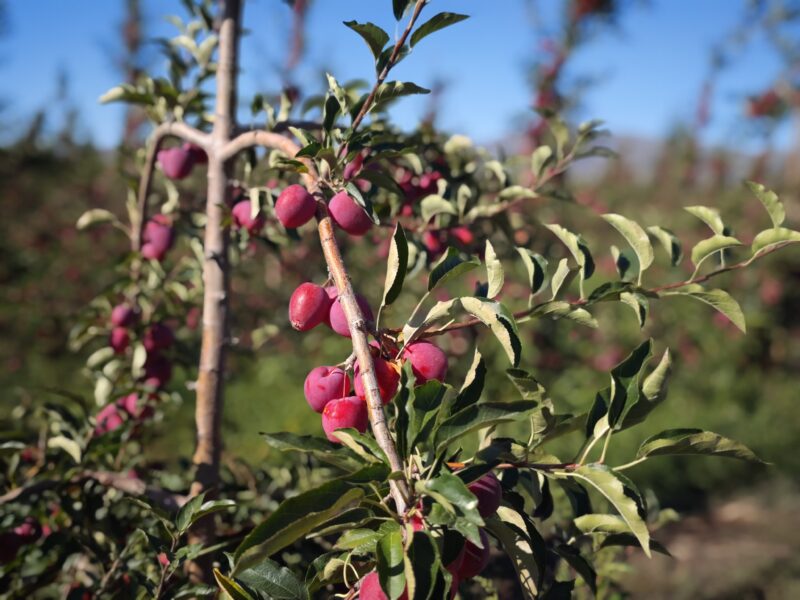
A sea of flowers at the foot of the God mountains
The Mount God Flower Sea Scenic Area, 60 kilometers from Yining city center, has become one of the symbols of Ili Kazakh Autonomous Prefecture. Many agricultural products such as lavender, apples, corn, plums and flowers are grown here. The most prominent product is lavender and lavender oil. About 160 tons of high-quality lavender oil is produced here. There are also R&D facilities in this region.
When we asked the authorities of the region, they told us that this area was previously an arid land. With the decisions taken by the Chinese state, this area has been greened and turned into a huge production area. Not only production and shopping, but also a large park area that attracts tourists. It is stated that about one million tourists visit this place annually.
We also had the opportunity to pick and eat fruit directly from the garden. We tasted small apples, which we had never seen before, and damson plums, which are exactly the same as in our country.
Employment opportunities
The Mount God Flower Sea Scenic Area has also created an important employment opportunity for local residents. During the peak employment season, the number of daily workers exceeds 3,000. This contributes to continuously increasing the incomes of more than 150 poverty-stricken households. The site is also listed by China’s Ministry of Natural Resources as “a typical example of realizing the value of ecological products”. Due to the improvement of the overall layout of the God Mountains Flower Sea Scenic Area and the continuous development of various service functions, it was awarded the honorary title of “National Advanced Collective for Poverty Alleviation” in 2021 and the honorary title of national “4A” level scenic spot in 2022.
Uzun Bulak village
The Communist Party of China has made significant progress in the fight against poverty over many years. Whereas in the 1970s there were hundreds of millions of people living in extreme poverty, now there has been a major victory over extreme poverty. Of course, this has been done through an important and elaborate program. Links have been forged between the states. The developed provinces in the east invested heavily in the relatively backward central and western provinces. Jiangsu province made significant contributions to the Ili Kazakh Autonomous Prefecture.
One of the important practices in the fight against poverty is the Uzun Bulak village.
This village was established in 2012. Especially for Kazakhs living in cave-like houses in the mountains, this village is an important symbol for the Kazakh Autonomous Prefecture in the fight against poverty. It is not only a witness to history, but also a living practice of socialist construction. When you visit this village, you get a glimpse into the history of rural development in China. The villagers we chatted with told us about the difficulties of living in the mountains in harsh winter conditions. They said that with the establishment of Uzun Bulak village, they had a more comfortable life, and with the newly created employment areas, they found jobs in different sectors.
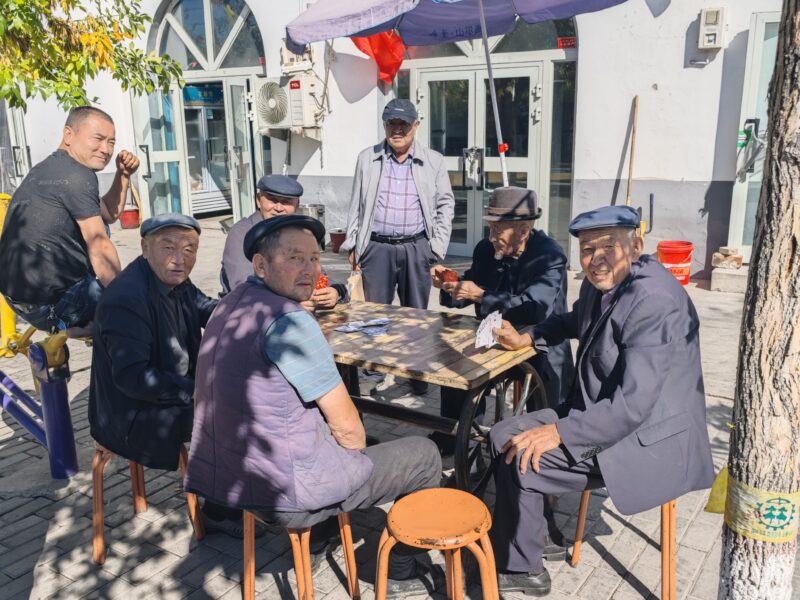
Party and people are intertwined
In the village, we visited a building where all government work is done in one place, showing the story of Uzun Bulak and the victories won in the fight against poverty. The village has 603 households and a population of 2,355. There are 73 party members in total.
On the walls of the building are important principles for the fight against poverty. Some of them are:
“Good times come from good policies of the Party, and a good life comes from the warm care of the Party Central Committee with Comrade Xi Jinping at its center.”
“A strong and powerful village committee dedicated to serving the people is vital for the development of the village.”
“The sensitive implementation of policies based on scientific thinking and grassroots consultative democracy is the key to modernizing the management capacity of villages.”
“People’s quest and aspiration for a better life is the biggest driving force for village development.”
Investment of approximately 13 million dollars
A total of 90.21 million yuan (about $13 million) has been invested in Uzun Bulak village over the past 10 years to implement 21 infrastructure projects, including roads, forests, canals, water supply and drainage systems. Livelihood projects such as schools, clinics, science dissemination centers, entertainment squares and agricultural markets have been built, making it easier for people to get medical treatment, education and employment.
Honor award to Uzun Bulak village
Uzun Bulak village has received many awards.
In April 2021, it was awarded the honorary title of “Advanced Grassroots Party Organization of the Xinjiang Uygur Autonomous Region” by the Communist Party of China Committee of the Xinjiang Uygur Autonomous Region. In December 2021, it was awarded the honorary title of “Advanced Collective” by the Autonomous Region’s “Ethnic Unity One Family” activity leadership group.
In July 2022, it was awarded the honorary title of “Unit for Demonstrating Ethnic Unity at the Autonomous Region level”. In December 2022, it was awarded the honorary title of “Advanced Collective for Rural Revitalization” by the Rural Work Leading Group and Rural Revitalization Leading Group of the Party Committee of the Prefecture of the Prefecture. In January 2023, it was awarded the title of “Advanced Collective for Rural Revitalization in the Autonomous Region” by the Leading Group for Rural Work of the Party Committee of the Autonomous Region and the Leading Group Office for Rural Revitalization.
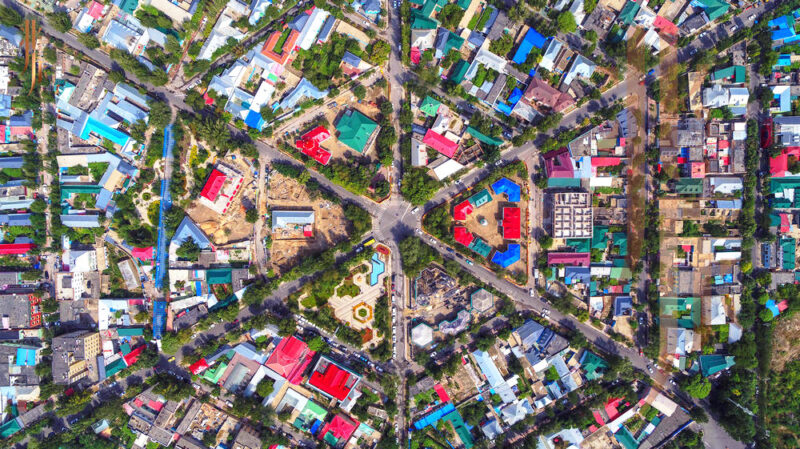
A place of ethnic richness: Six Star Street
The most interesting place in Yining is Six Star Street (Liuxingjie). The specially designed area includes houses, shops and restaurants. Planned and built in 1934, Six Star Street is not only Yining’s cultural heritage, but also a legacy of cultural exchange in urban planning and construction between China and the West, with historical and cultural value. Six Star Street is a hexagonal block with three roads intersecting at the central point and six main roads spreading out to form a hexagonal block, hence the name Six Star Street. There are many ethnic groups living in this area, including Han, Uyghur, Kazakh, Hui and Russian.
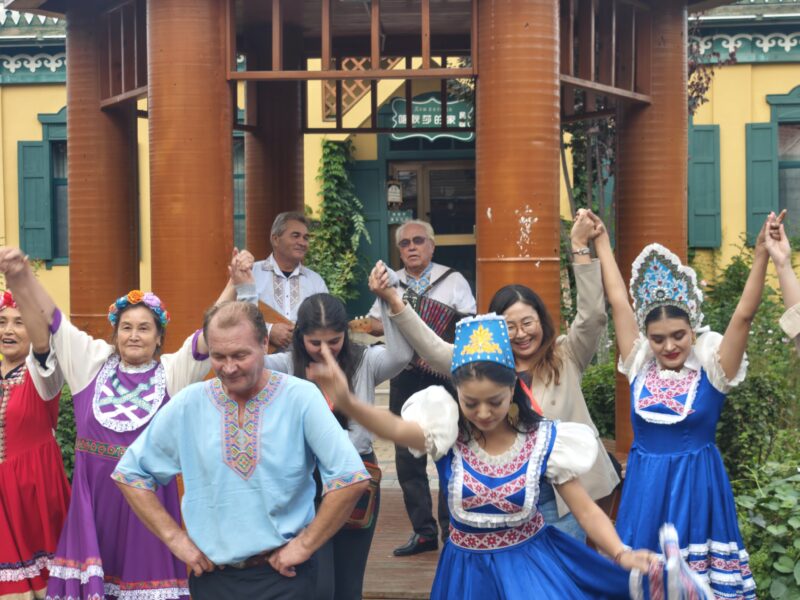
Multiversity
In the public hall in this area, we came across a large collection of accordions brought from all over the world by Aleksandr, a Russian accordionist who lives in the region. After seeing the instruments, a music group of Uyghur, Han, Kazakh and Hui ethnic groups gave a small concert.
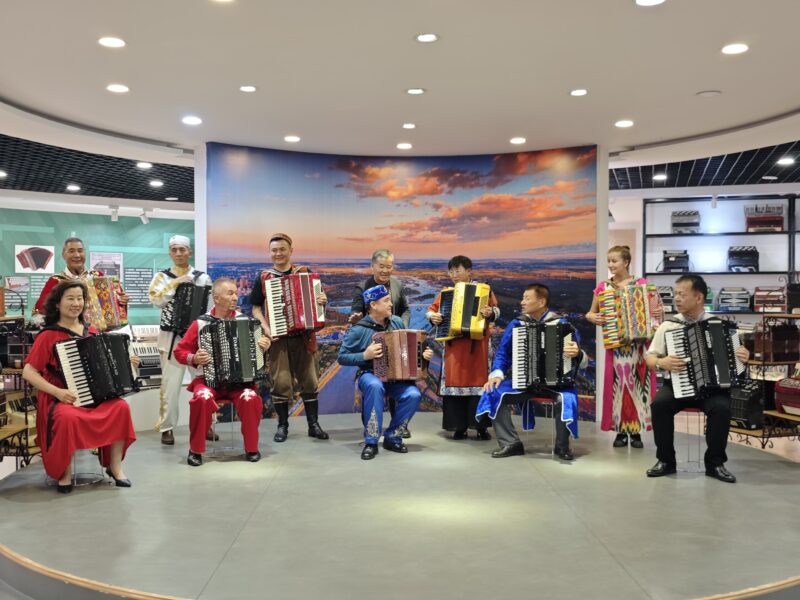







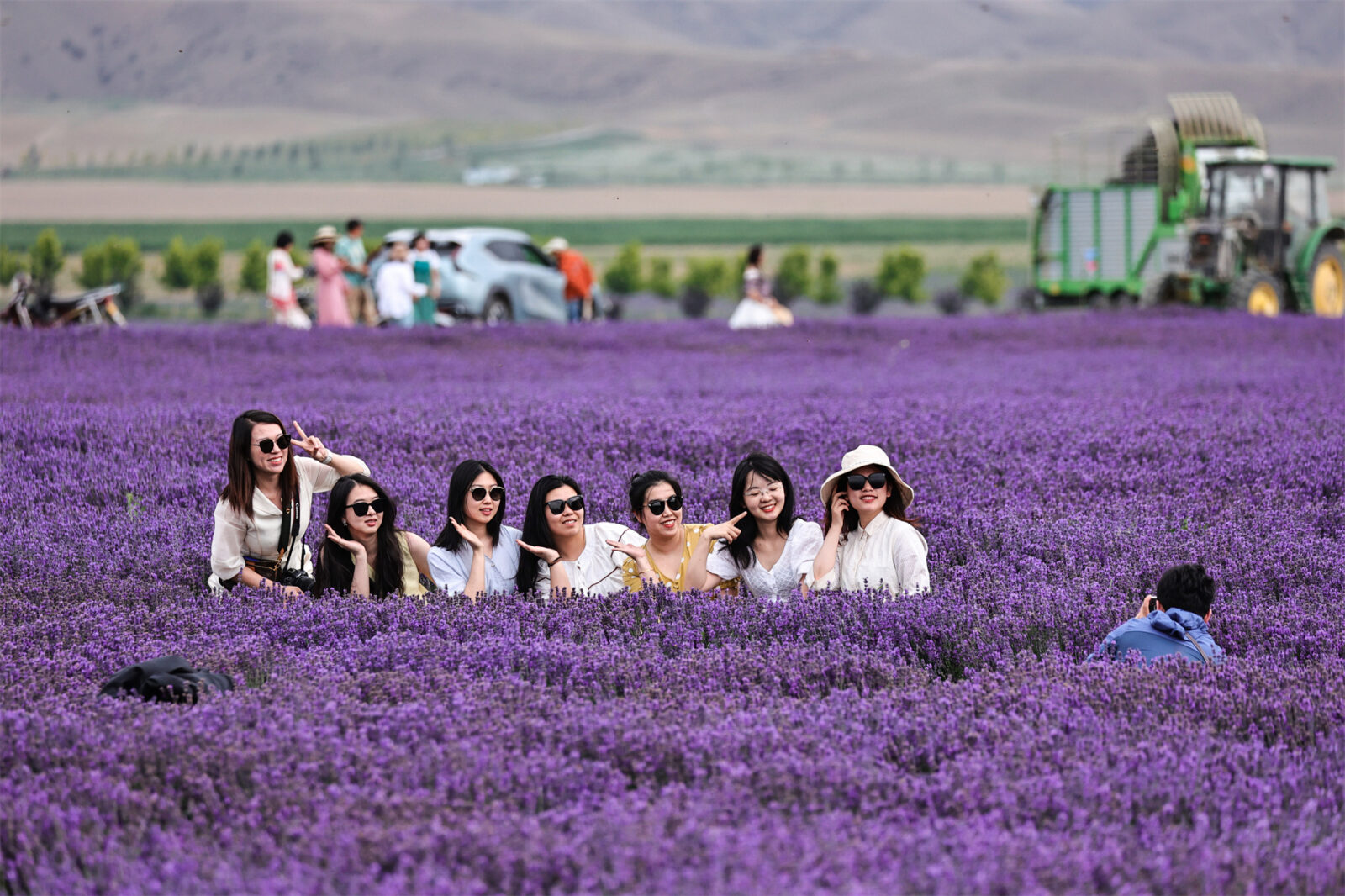









Leave a Reply